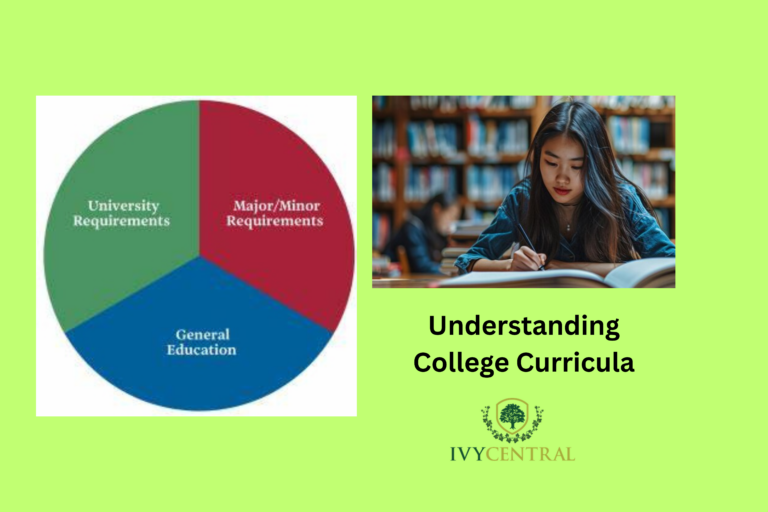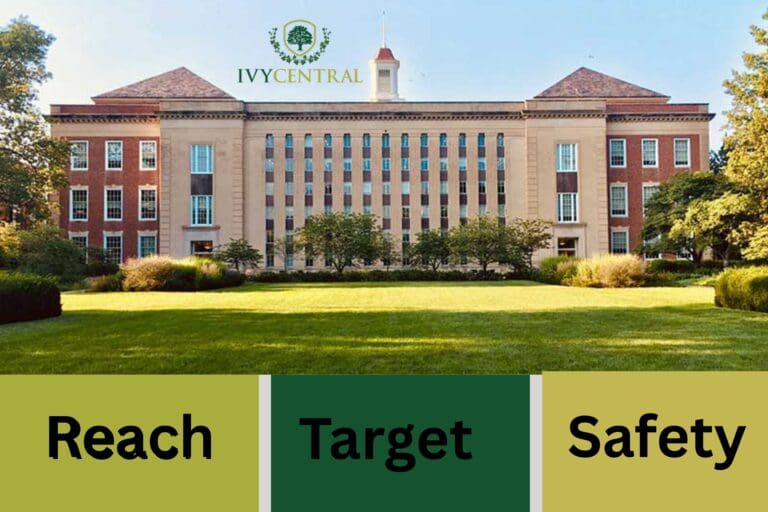Understanding College Curricula: What You Need to Know
Can you imagine sitting in a college class you didn’t even know you signed up for? To avoid such surprises, it’s essential to understand the type of curriculum you’ll be engaging with right from day one of your college journey. This should be a top priority during your college search.
What Does a College Curriculum Include?
Let’s break it down into the key components you need to be aware of:
Mandatory Curriculum Requirements
1. Distribution Requirements
Many colleges require you to explore a wide range of subjects—these are known as distribution requirements.
Examples of categories include:
-
Natural Sciences
-
Historical Studies
-
Ethics and Values
-
Literature
-
Fine Arts
For instance, Northwestern University includes such categories in its curriculum. While these courses are mandatory, you can choose specific classes within each category.
2. Core Curriculum (General)
-
For instance, this applies to Columbia University’s Courses, where courses like ‘Frontiers of Science’ and ‘Literary Humanities’ are offered, and all students are expected to complete the Core Requirement (fun fact: the Engineering students’ curriculum requirements include a third of the Core). While the Core curriculum is mandatory, students are allowed to choose from various core courses that align with their interests and passions.
Open Curriculum
The opposite of a Core Curriculum is the Open Curriculum, like at Brown University, where you’re given the freedom to design your academic path with minimal requirements.
3. Major-Specific Core
Many colleges and universities require that students pursuing a certain major be exposed to the same theoretical foundation, regardless of their concentration/track/area of specialization, which is why they offer a major-specific core curriculum. You can expect this for most business majors.
4. Capstone Project or Culminating Experience
Usually undertaken in your senior year, a capstone project involves working on a real-world problem, often in teams.
It may include:
-
Research apprenticeships
-
Simulations
-
Cross-disciplinary collaboration
The capstone project provides students with the practical experience of solving a real-world problem before they step into the professional world or pursue their graduate studies. In many cases, this is a group-based project that could be a research apprenticeship, simulations for real-world problem solving, and so on. Overall, students develop skills like independent and critical thinking, intercultural thinking, information literacy, collaboration, and research, which help prepare them for professional careers and/or graduate school.
5. Thematic or Inquiry-Based Courses
Designed to encourage critical and interdisciplinary thinking, these courses focus on big-picture questions, such as:
-
Ethics and morality
-
Cultural identity
-
Social responsibility
These are common in schools without a rigid Core Curriculum structure.
6. Physical Education (Yes, really!)
Surprisingly, some colleges have a Phys Ed requirement—you may even need to pass a swimming test to graduate.
Colleges with this requirement include:
-
Cornell University
-
Columbia University
-
Dartmouth College
-
MIT
Non-Mandatory Curriculum Requirements
These are the aspects you get to choose based on your interests and aspirations.
1. Concentration or Specialization
While you obviously know that you can choose your major (mostly in your sophomore year), you also get to choose the track/concentration. For instance, if you wish to pursue a business major, you can select from various concentrations such as entrepreneurship, business analytics, leadership, real estate, and environmental sustainability at Babson College.
2. Elective Courses
Electives are the courses that go beyond all of the requirements for your major and the ones that you can pick from purely for joy or to satiate your intellectual inquiry. What do you get in return? Credits!
Most students tend to go a bit crazy selecting electives as options could range from art and music to home economics, such as sewing/cooking. Electives could be a great way to reduce the academic stresses from your mandatory courseload, so make the most and remember to have fun.
-
Art and Music
-
Home Economics (yes, even sewing or cooking!)
Electives offer:
-
Academic exploration
-
A break from heavy courseloads
-
Additional credits
3. Double Majors
Many colleges encourage students to pursue two majors, especially those who want an academically rigorous path.
For instance, the University of Southern California (USC) has a large population of double majors. Sometimes, this is because colleges want students to challenge themselves academically by opting for two majors.
Final Thoughts: Prioritize Curriculum Fit
In a nutshell, prioritize understanding the kind of curriculum offered by all colleges you will apply to. This will also help you immensely when working through supplemental essays. Ivy Central wishes you luck with your college exploration and finalization journey!







